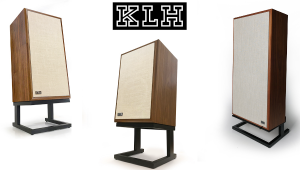Peter Frampton Forgets the Words, But Still Nails All the Riffs

It's not hard to see (and hear) why, considering how Frampton has been most meticulous about getting the exact sound he wants on record, thanks in no small part to his fruitful, decades-spanning collaborations with ace producer/engineer Chuck Ainlay. For sonic evidence of their work together, check out the tone, breadth, and character of this-century Frampton albums like August 2003's
Their latest in-tandem collaboration, Peter Frampton Band's Frampton Forgets the Words (UMe), is out now. Besides being available on CD and via all major digital outlets, Frampton Forgets the Words also comes in a pair of 2LP 180-gram versions: a) standard black vinyl, and b) limited-edition coke-bottle clear vinyl (the latter option, however, is currently sold out). Each 2LP set sports a cool laser-etching of the album's way-cool modified typewriter cover image on Side 4, similar to what was done with the Frampton logo that appeared on Side 4 of the 2LP set for the above-noted All Blues. (You can read my 2019 interview with Frampton about All Blues here.)
Forgets the Words more than lives up to its semi-tongue-in-cheek title, sporting ten instrumentals showcasing Frampton's still-deft touch on the fretboard, whether it's his fresh take on Radiohead's "Reckoner," his sympatico reading of George Harrison's "Isn't It a Pity," or his soaring revisiting of David Bowie's "Loving the Alien," a showcase track for Frampton when he was the lead guitarist on Bowie's 1987 Glass Spider Tour.
As you may already know, Frampton has spent countless hours in recent years recording as much music in his Nashville studio (dubbed Studio Phenix, after one of his most sacrosanct guitars) as he possibly can while battling inclusion body myositis, or IBM, an inflammatory muscle disease that affects legs and arms as well as some of a world-class guitar player like Frampton's most valuable assets — namely, his hands and fingers.
While working on Words, all was well vis-à-vis Frampton's mobility, and that also means the clear execution of his overarching intentions for the album's contents were readily attainable from the get-go. "These are tributes. We don't call them versions," Frampton clarifies. "We call each one of them a tribute to the artist. We wouldn't have picked them, had it not been for the fact that we loved them. We're certainly not trying to ruin them!" he concludes with a hearty laugh.
Frampton, 71, called me from his homebase in Nashville to discuss his wordless Words choices, the perennial impact of Frampton Comes Alive! (and its fabulous surround mix on DVD-Audio and SACD), and possible future intentions for revisiting and remixing key entries from his storied catalog in Dolby Atmos. Reckoner / You can't take it with you. . .
Mike Mettler: Before we get into Frampton Forgets the Words, I have to ask you, just like my mom asks me every time I talk to her on the phone, how's your health?
Peter Frampton: I'm doing ok, thank you. I've also gotten both of my vaccine jabs [i.e., shots], which meant I finally got to go see my granddaughter.
Mettler: That's good to hear. I like the idea that your guitar is the voice of this record since it's all-instrumental, and you're playing the lyrics so well. I hear the way you play [vocalist] Bryan Ferry's inflection on the word "tired" in what you're doing at the beginning of Roxy Music's "Avalon" — where he draws out the "i" in the word "tired." And you pull that inflection out perfectly. I guess that was your intention — to follow that emotion.
Frampton: Well, you've picked up on that. There are some other great guitar sounds on the record — and it's not all due to me; it's also due to [co-producer] Chuck Ainlay, and the way he was recording me. I can't play well unless there's a great sound coming out of the amp or the speakers, since, as you know, I'm an audio freak! (laughs)
But if there's a perfect record album category, personally, I would put the [May 1982] Avalon album in that category, because the music is so good, as are the vocals, and the playing — everything. Bob Clearmountain engineered it and mixed it, and it just can't get any better, you know? I used to move around to different homes, and each time I would set my speakers up in my music room, I would use the Avalon album to EQ my speakers! (chuckles)
Mettler: I'm right there with you on that, because I use Bob's Avalon 2003 SACD 5.1 mix as a benchmark recording myself. [MM adds: My exclusive interview with Bob Clearmountain about Avalon and much, much more will be posting on S&V in the coming month.]
Frampton: With "Avalon," the song, I have to say I'm most proud of the sound and the inflection of capturing Bryan's mood — the mood of his singing. I mean, that one, to me, is — I nailed it! (laughs) The only thing I have to qualify that with is, most of this album and half of a solo record was recorded in the winter of 2019. And that will be my first solo record in a long time [i.e., a solo album credited to Peter Frampton only, and not Peter Frampton Band].
Being locked down like we all have been for over a year — and I live on my own — you might be thinking, "Well, you must have written like 150 songs." There have been some times during the lockdown where I don't feel creative at all musically. But lyrically, I do — which is great, because that's usually the harder part for me. Then again, every couple of weeks, I get like a ten-day spurt of music that comes out, and I record all my little bits and everything.
When I've spoken to other musicians who are locked down, I found out we love lockdowns, because that's usually where we are when we're waiting for [tour managers] to come and get us to go to the soundcheck, since we're locked down in the dressing room or hotel room! (laughs heartily) But this is a whole other reason to be locked down — and, obviously, we don't like that.
A lot of people have said, "Yeah, I thought I would be just more creative during this period." And some people are super-creative, you know? So, it varies. It varies. For me, I go in and out of it.
Mettler: I've talked to a lot of musicians and songwriters about this before, but there's a creative wave that sometimes is open, and sometimes it's not. And if you receive things when it's open, it just comes to you, right?
Frampton: Yeah. I read Bob Dylan's Chronicles, Volume One [published by Simon & Schuster in 2004], and the lights went on in my head. It was like a big realization. He said — and I was so thrilled to hear this — he said, "I went for two years without being able to write, or to want to write anything. And then, within a ten-day period, I wrote a whole album and lyrics. I put it in the drawer in the dining room, and shut the drawer. And I said, 'I'm ready.'" And then he thought about it, and said, "I've realized that you're always writing. You're always creative, but sometimes you're an input, and sometimes you're an output. So, when you feel like you've got writer's block, it's the input [mode] that you're in." That made me feel so much better! (laughs heartily)
Mettler: You don't have to be guilty about not putting a new project out all the time. I talk to songwriters and musicians about this a lot, because it's the same for me. It's ok to be
Frampton: Exactly! It's like when I start to record again to finish the next solo record. It will not necessarily come out in a timely fashion, because it's going to be the best solo studio album I've ever done — because it has to be, in my mind. It's the challenge. It's the nervousness. It's the keeping up with myself, and pushing myself to a different level — a new level, a new place — and re-inventing myself. Yes, it'll sound like me, but for me, it will be different. It will be a different place that these things are coming from with different inspirations, and stuff like that.
Mettler: Well, if you don't mind my sort of tongue-in-cheek, black humor title for the album, I think you have to call it Frampton Is Still Alive!
Frampton: Ok. Alright! (laughs heartily) I like that.































































